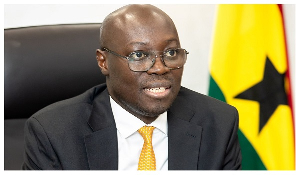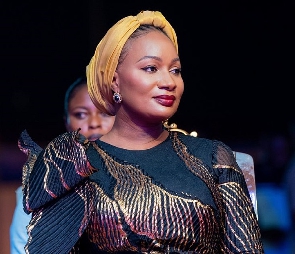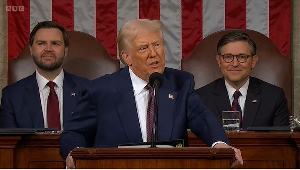The Citizen Watch Ghana, one of the leading think tank groups in the country, is urging the government to liquate part of the country’s reserves as a social compensation for its citizenry in response to a possible lockdown of the scary pandemic-COVID 19.
Ghana’s Gross International Reserves is hovering around US$10 billion, translating into more than 4 months of import of goods and services.
“We have an epidemic in our country which is fast spreading in the country. There is a greater possibility of a possible lockdown…So our proposition to the government is that let's use US$1 billion of our reserves to develop a social compensation plan for the country”, according to a statement signed by Francis Agbenyegah, Convener of the group.
The statement quizzes that “If we are able to resolve the banking financial crisis with our taxpayer's money with an amount of GHC16 billion, why can’t we do same with our reserves in supporting the most affected groups such the teachers, tro-tro drivers, artisans among others.
The target group is estimated at about 9 million people excluding those already enjoying from corporate exemption taxes and interest rates and what have you.
“Assuming the government dolls out between GHC300 and GHc500 for people who are venerable it would go a long way to support their economic activity should there be a lockdown for at least one month”, it said.
According to the Citizen Watch, “we can use an electronic device to track all these people through the use of the digital address system for their compensation adding that we can’t sit down to watch our people suffer during this hard times and allow anything to happen, when we can use US$1 billion of our reserves as a relief package to support its citizenry”, it said.
The negative impact of COVID-19 on exports, imports, taxes, and foreign exchange receipts will culminate in a slowdown in economic activity. GDP growth is forecasted to decline to 5.0 per cent in a baseline scenario. In the worst-case scenario, GDP growth estimates could be halved to about 2.5 per cent in 2020.
These assessments are preliminary as the situation is very fluid and the degree of uncertainty concerning the outbreak is very high. This means that there is a likelihood that these assessments could change rapidly.
There is also a likelihood of export restrictions from advanced economies and other emerging market economies which could create supply chain shortages for Ghanaian businesses, with significant impact on imports of intermediate and capital goods, as well as consumption goods.
This is expected to negatively affect inputs in the domestic production channels with severe consequences for growth and tax revenues which could become more pronounced by the second or third quarter.
In addition, crude oil prices have declined sharply to historically low levels, and already creating negative shocks on exports, albeit with some offsetting effects from rising gold and cocoa prices.
General News of Wednesday, 25 March 2020
Source: Ruth Aboagye, Contributor

















